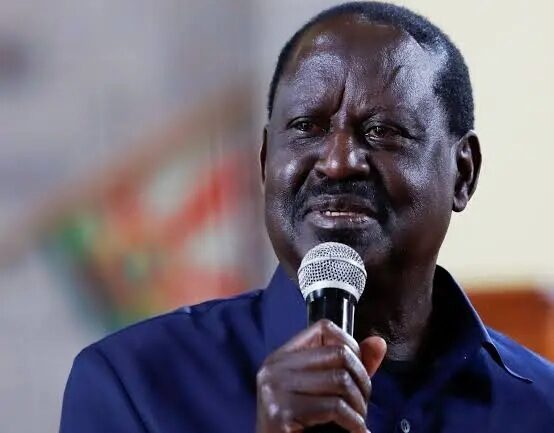Former Kenyan Prime Minister Raila Odinga has died at the age of 80, a source in Odinga’s office told Reuters on Wednesday, without giving further details.
Indian newspaper Mathrubhumi earlier reported that Odinga, who was undergoing treatment in the southern Indian city of Kochi, suffered a cardiac arrest on Wednesday and was rushed to the hospital, where he was pronounced dead.
As opposition leader, Odinga lost all five of his presidential campaigns, with two of the votes leading to chaotic bouts of bloodletting and recrimination a decade apart.
His work as a democracy activist over the years helped seal two of the country’s most important reforms: multiparty democracy in 1991 and a new constitution in 2010.
He led the protests after the disputed 2007 election that plunged the country into its most serious episode of political violence since independence. About 1,300 people were killed and hundreds of thousands displaced from their homes in the battles.
Kenya has been considered one of the most promising countries in Africa – an oasis of stability in a turbulent region, but it spun into chaos after heNational Election Commissior declared President Mwai Kibak winner of aclosely contested electior n December last year, over Premier Odinga, whoinsisted, he won most ot the votes.
President John Kufuor of Ghana who was Chairman of the African Union (AU) during the crisis did not only travel to Nairobi to talk to the feuding parties but set up a three member Committee of Eminent Africans, chaired by Ghana’s most celebrated Diplomat, Mr Kofi Annan, that eventually succeeded to mediate a peaceful solution, culminating in the signing of a power sharing deal.
After his most recent defeat in 2022, Raila Odinga later joined President William Ruto in a so-called broad-based government, which brought several of his allies into key positions.
He defended the move as necessary for national unity, coming in the aftermath of watershed nationwide protests last year that culminated in the storming of parliament. Dozens of protesters were killed in confrontations with security officers.
The Ruto administration backed Odinga’s bid to become chairperson of the African Union Commission, in elections held earlier this year. Despite strong regional support, he lost to Djibouti’s Mahmoud Ali Youssouf.
Odinga inspired a passionate and loyal following throughout his political career, especially in western Kenya, where he was from.
His supporters called him “Baba” (Father), “Agwambo” (Act of God), and “Tinga” (Tractor) – drawn from his party’s symbol during the 1997 elections.
He was widely regarded as a master strategist and mass mobiliser, often drawing huge crowds to his political rallies, and he had a deep ability to connect with ordinary people.
He will be remembered for his unwavering fight for democratic freedoms and human rights.
He was a former political prisoner, and holds the record for being Kenya’s longest-serving detainee. His struggle against one-party dictatorship saw him detained twice (from 1982 to 1988 and 1989 to 1991) during the rule of Daniel arap Moi.
He was initially imprisoned for trying to stage a coup in 1982, which propelled him on to the national stage.




